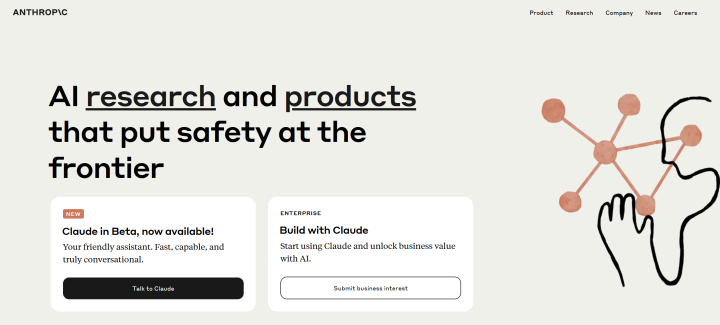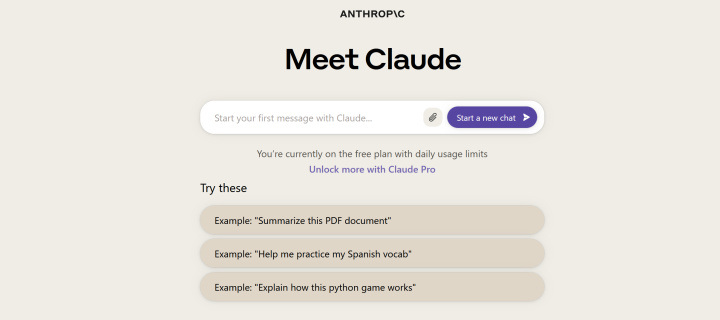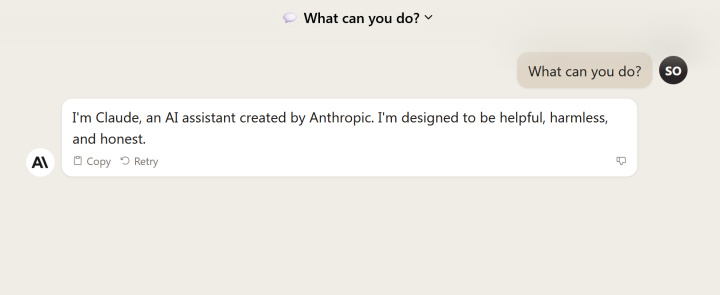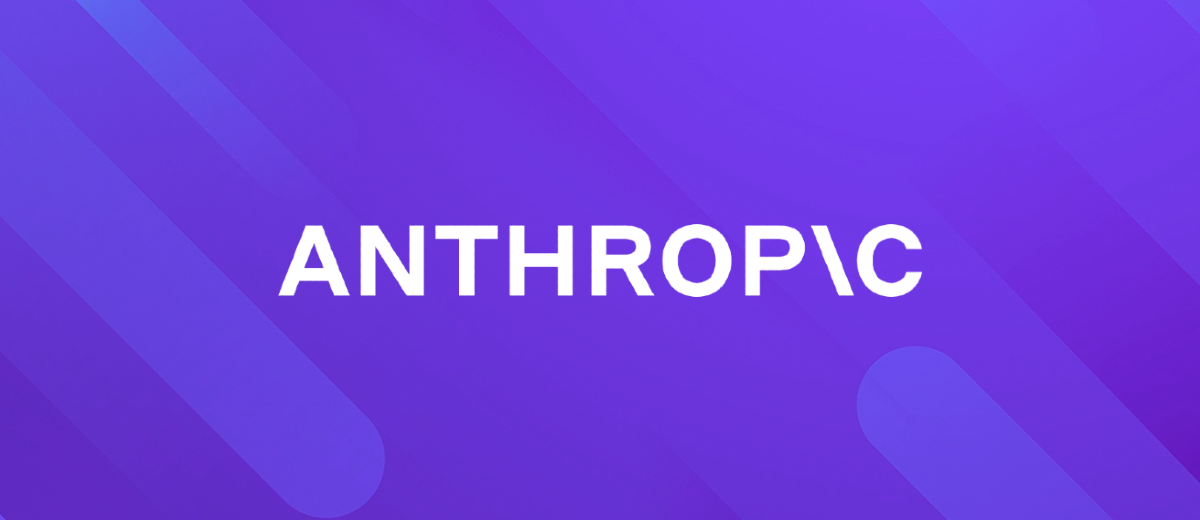Anthropic PBC: History, Development, Products, and Prospects
Developments in the field of generative AI can easily be called the main IT trend in 2022–2023. Digital products created on their basis have become powerful universal AI human assistants. OpenAI is rightfully considered a recognized leader in this area, having released the revolutionary GPT natural language processing algorithm and the famous smart chatbot ChatGPT. At the same time, it can no longer be called a monopolist in the industry, since new players regularly enter this market.
One promising "newcomer" is Anthropic. Not long ago, it introduced its own chatbot with support for generative AI, called Claude 2. In our article, you will learn about the history of the origin and development of this promising startup, which plans to attract $4 billion in investment from the legendary Amazon. In addition, we will share the features and benefits of its flagship product, the Claude AI smart chatbot, and provide a comparative overview of Anthropic and one of the recognized leaders in the AI industry, OpenAI.
Origins of an Anthropic AI Startup
If you've never heard of this company, the first thing you'll be wondering is what is Anthropic AI. This startup was founded by two former OpenAI employees, Dario Amodei and Daniela Amodei. Before launching his own project, Dario served as Vice President of Research. It is believed that it was his contribution that was key in the development of the GPT-2 and GPT-3 neural networks, the main brainchild of OpenAI at that time. However, due to disagreements with its management, brother and sister Amodei, along with some other specialists, were forced to leave the ranks of the company.
One of the main prerequisites for this decision was the joint projects of OpenAI and Microsoft in 2019. According to Amodei, the priority when developing AI technologies should be the safety of such programs. They feared that Microsoft's investment would make the product too commercialized. In addition, they were concerned about the possibility of these systems getting out of control and causing harm to humanity, as well as using them for criminal purposes, which the developers would not be able to resist.
In 2021, a group of ex-OpenAI employees led by Dario and Daniela Amodei founded a new startup. It was originally called the AI Safety Lab and was eventually renamed Anthropic AI. Today, the company is called Anthropic PBC. The abbreviation reflects its current legal status as a public benefit corporation. At first, the co-founders planned to take ready-made AI models from third-party developers as a basis and test their security. However, they subsequently came to the conclusion that this would require creating a powerful neural network from scratch, and began developing their own language model, named Claude in honor of the famous mathematician Claude Shannon.

Anthropic PBC: Development Milestones
Today, the company has 160 employees. This can hardly be called an impressive result, especially when comparing Anthropic vs OpenAI, which uses the knowledge and skills of about 500 specialists. Despite its modest headcount, the former startup is one of the leading AI technology providers on the market. Its product successfully competes not only with the famous ChatGPT chatbot but also with similar developments by Google and Meta corporations.
Starting work on our own neural network required increased funding. Anthropic's creators needed to raise hundreds of millions of dollars to purchase the ultra-powerful processors needed to train AI models. One of the startup's first investors was Google's cloud division, which invested $300 million in it for a 10% stake in the project. In addition, the terms of the deal obligated the young company to use Google Cloud computing resources for its work.
At the end of 2022, Anthropic received funding totaling $700 million. Of this, $500 million was invested by Alameda Research, a subsidiary of the famous cryptocurrency exchange FTX, which later went bankrupt. The founder and head of the exchange, Sam Bankman-Fried, was personally present on the list of investors at the Series B stage. It is worth noting that Anthropic is associated with the now-popular “effective altruism” movement, which Bankman-Fried and other famous entrepreneurs from Silicon Valley spoke positively about. Apparently, this, in particular, was the reason for the favor towards the startup.
Funding for the development of the innovative neural network Anthropic AI Claude continued in 2023. In May, the startup raised $450 million in another round of investment, which included Spark Capital, Menlo Ventures and Sound Ventures. The communications platform Zoom and the investment arm of Salesforce also invested in it. In September 2023, Amazon announced plans to sponsor Anthropic, PBC for a huge amount of $4 billion (the first tranche will be $1.25 billion). The deal will see Amazon Web Services (AWS) become the startup's primary cloud computing provider. In addition, Amazon will receive a minority stake in the enterprise.


The ongoing collaboration between Anthropic and Amazon includes more than just financial support. Neural network developers will begin using custom AWS chips to build, train, and deploy artificial intelligence models. The companies will also cooperate in projects to develop new AI chips. Because Anthropic uses AWS infrastructure, Amazon cloud customers will be able to rent its products through the Amazon Bedrock e-commerce platform. It allows you to securely develop cloud applications using generative AI technologies based on commercially available neural networks. In addition, Anthropic's AI models will be available to Amazon engineers and developers while they work on the corporation's projects.
Claude: A Next-Generation AI Assistant
The Anthropic team was prompted to begin developing its own AI algorithm by the shortcomings of previously released neural networks. In particular, they were unhappy with the unpredictability, unreliability and lack of transparency of such systems. According to Dario and Daniela Amodei, the creators of artificial intelligence should pay much more attention to its safety. The AI they produce must adhere to a so-called “constitution” so that its actions do not contradict the principles established by humans. All this was implemented in the Claude AI chat bot. The latest version of this program, Claude 2, was released in July 2023.

Similar to its better-known competitor, ChatGPT, which launched in the fall of 2022, Claude interacts with users via text messages. Therefore, figuring out how to use Claude AI is not at all difficult. Those who want to test the bot’s capabilities can send it text prompts via the web interface and receive relevant answers from AI algorithms. Before the official release in July 2023, the service was only available to a closed group of beta testers through Slack integration. Today it is open on the claude.ai portal.
An important advantage of Claude, compared to ChatGPT, is that the standard version is completely free. It also has a paid version of Claude Business with additional features for commercial use. Anthropic's neural network is a more attentive and careful chatbot than ChatGPT. This is due to its language model training mechanism, which combines a general reinforcement learning approach (based on feedback from human trainers) and an exclusive technique created by the startup team. It is called “constitutional AI” and allows you to configure neural networks in accordance with the principles that are written in their constitution. The Claude Constitution is based on the UN Declaration of Human Rights and a number of other documents.
Some users find the functionality of the AI Claude limited due to its algorithms' refusal to provide answers to certain queries that violate its constitutional principles. But, according to the developers, the caution and correctness of this chatbot will make it more attractive to businesses. Among the advantages of a neural network are high data processing speed, good programming skills and the ability to draft tasks that require clear justification or compliance with safety regulations. Plus, this chatbot is no stranger to creativity. Judging by some reviews, it is even capable of demonstrating a sense of humor.
In addition to the standard version of the bot, Anthropic clients are offered its lightweight version, Claude Instant. According to the developers, it works faster and requires fewer resources, but no less effectively performs a number of actions, for example, conducting a dialogue, performing text analysis, summarizing, classifying, analyzing the content of documents, and so on. The company plans to expand the geographic reach of Claude by the end of 2023.

Anthropic vs. OpenAI
Both companies are aimed at developing and improving artificial intelligence technologies, but they have many differences in their structure, views, approaches, principles and other important criteria. First, when comparing Anthropic AI vs OpenAI, it is worth paying attention to the mission and vision of the projects. The goal of the startup by Dario and Daniela Amodei is to develop controlled, transparent and safe AI with universal values. Anthropic's approach is based on the belief that artificial intelligence should serve humanity and improve our lives, rather than replace or threaten humans.
Sam Altman's company, OpenAI, focuses on the performance and functionality of its neural networks. Its goal is to create the most powerful and versatile AI models capable of solving a wide range of problems, at least at the level of the average person. Today, OpenAI products not only effectively process natural language and recognize images, but also perform well in other areas (robotics, games, etc.).
An equally important difference between OpenAI vs Anthropic lies in their organization and structure. Although both businesses are based in San Francisco, they have different legal models and forms of governance. Anthropic is registered as a public benefit corporation (PBC). This means that its statutory purpose is not only to make a profit, but also to provide benefits for society. In its activities, it is not limited by the influence of shareholders, which gives it greater freedom of action.
OpenAI's structure consists of two organizations: non-profit (OpenAI Inc.) and commercial (OpenAI LP) corporations. The non-profit oversees the research program and is responsible for the global coordination of the enterprise's activities. The commercial division is engaged in the sale of developments. The OpenAI Board of Directors, which includes representatives from both structures, is responsible for general management.
Another criterion for comparing Anthropic AI vs Open AI is their products. The first company now deals only with generative AI models, paying special attention to “humanizing” them. The second has more ambitious goals of creating powerful and scalable artificial intelligence systems that exceed human capabilities in performing various tasks.
Conclusion
It’s not for nothing that the Anthropic startup is called one of the most promising IT projects of our time. It was founded by a small group of enthusiasts and, to this day, is far from the scale of large corporations. However, the company's mission of not only developing artificial intelligence technologies, but also giving them humanity, is critical. The chatbot it created, Claude Anthropic AI, is only the first, essentially a trial product, and does not yet have any superpowers. But the foundations Anthropic is laying for humane and safe AI could have a tremendous impact on the entire artificial intelligence industry, pointing the way for larger-scale developments in the future.
Apix-Drive will help optimize business processes, save you from a lot of routine tasks and unnecessary costs for automation, attracting additional specialists. Try setting up a free test connection with ApiX-Drive and see for yourself. Now you have to think about where to invest the freed time and money!

